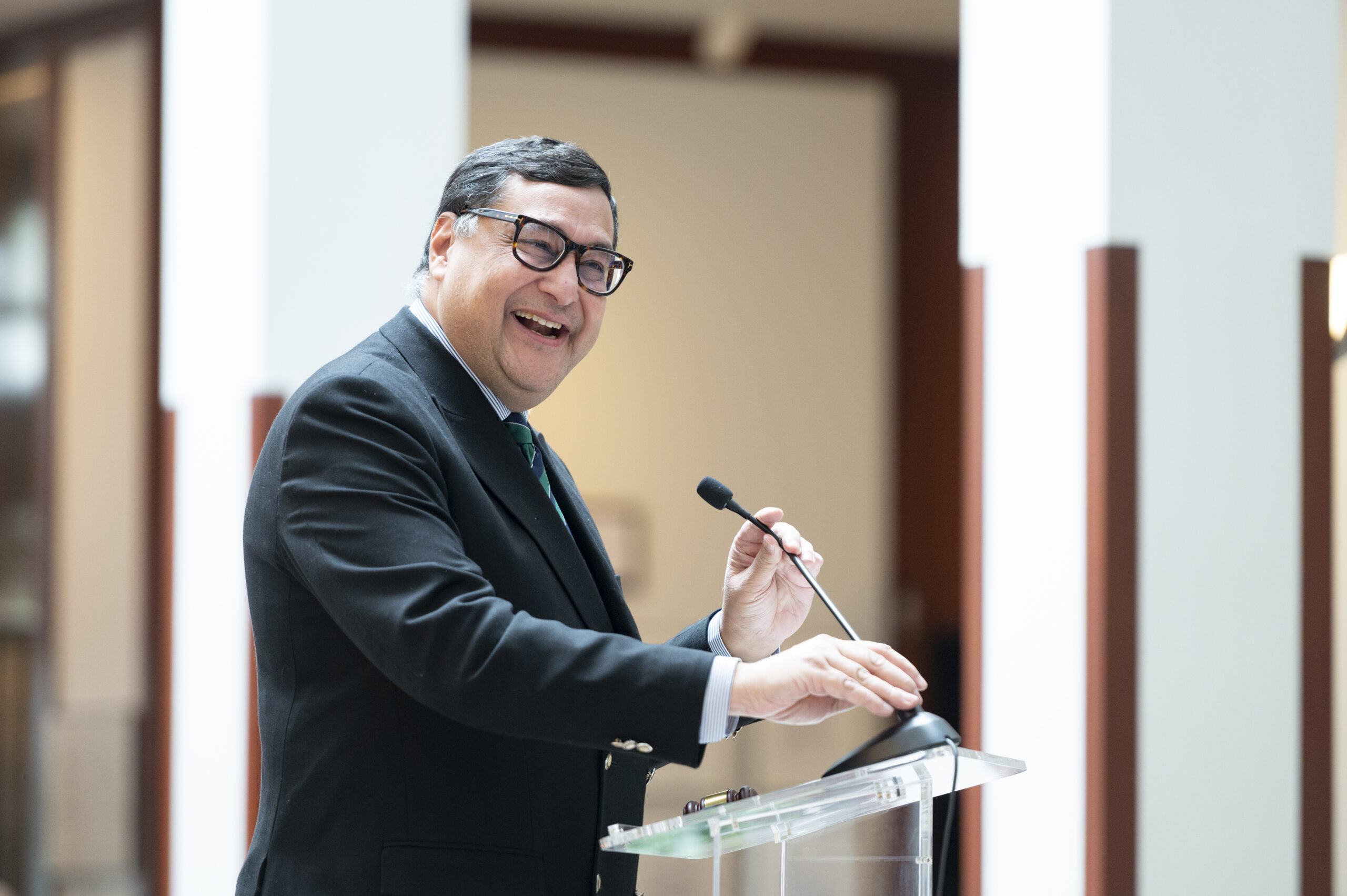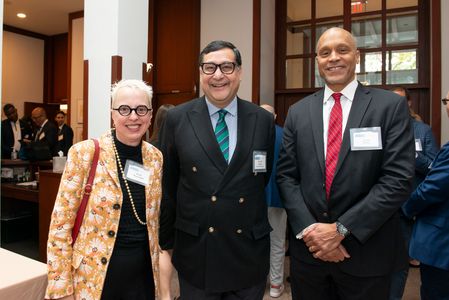Adil Najam Speaks of a “Planet in Distress” and the Threat to Multilateralism

At an event marking U.N. Day organized by the United Nations Association of Greater Boston (UNAGB) and held at the American Academy of Arts and Sciences on October 20, this year’s honoree and keynote speaker Dr. Adil Najam spoke on the theme of a ‘planet in distress’ and why the United Nations is more needed today than ever before.

Adil Najam, who is Dean Emeritus and Professor at the Pardee School of Global Studies and President of WWF-International, stressed that while we often blame the United Nations for what seems to be inaction in times of crisis, the failure belongs, in fact, to nations and leaders of the world who have consistently chosen to ignore and undermine the most important multilateral institution in the world. Najam argued that in a world beset with challenges – political, economic, climatic, social – “the threat to the idea of multilateralism itself should be particularly worrying because it delegitimizes the most important tools that we have to deal with our multiple planetary crises.”
In his wide-ranging keynote, Najam invoked the idea that many of the challenges that we face today are truly global and require us to get out of narrow nationalistic tribalisms and think of ourselves as a human species. He suggested that we are now in the ‘Age of Adaptation‘ not only in a climatic sense but also in social and political terms and the challenges before us “demand a resolve borne out of humility, not arrogance.”
Adil Najam is Dean Emeritus and Professor at the Pardee School of Global Studies at Boston University and since July 2023 also serves as the President of WWF-International. He served as the Inaugural Dean of the Frederick S. Pardee School of Global Studies from 2014-2022. He is also a former Vice-Chancellor of the Lahore University of Management Sciences (LUMS). His research focuses on issues of global public policy, especially those related to global climate change, South Asia, Muslim countries, environment and development, and human development. Read more about Najam on his Pardee School faculty profile.